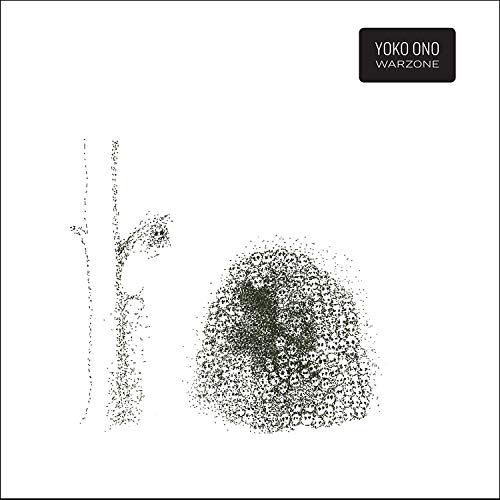
Yoko Ono
Warzone
Release Date: Oct 19, 2018
Genre(s): Pop/Rock
Record label: Chimera Music
Music Critic Score
How the Music Critic Score works
Buy Warzone from Amazon
Album Review: Warzone by Yoko Ono
Fairly Good, Based on 6 Critics
Based on rating 7/10
Arriving in the year of Yoko Ono's 85th birthday, Warzone doesn't just revisit her greatest hits. On her first new album since 2013's Take Me to the Land of Hell, Ono eschews some of her better-known work in favor of songs that highlight the importance of peace and humanity in her music over the years. In their original forms, Warzone's tracks spanned folk-rock, revolutionary funk, '80s AOR, and feral proto-punk.
Based on rating 6.5/10
Warzone finds Yoko Ono revisiting her work from 1970 through 2009. While these 13 tracks are new versions of early highlights, they sound like fresh statements, with lyrics that are as strikingly relevant as ever. Ono's delivery is often stark, with messages that are usually bleak, serving to underscore how these are songs that consider the present at least as much as they did the original influences that led Ono to conceive them.
Based on rating 6.3/10
"People of America, when will we learn?" Yoko Ono asked over a briskly strummed acoustic guitar on her 1973 album, Approximately Infinite Universe. "It's now or never: There's no time to lose." She sings those same words on Warzone, a collection of 13 songs from her back catalog that she re-recorded with their original lyrics and somber new synthesizer underpinnings. It's been 45 years since she first urged her adoptive home to dream of a reality unblighted by violence.
Based on rating 3
Revisiting old work isn't uncommon, but rarely is it entirely rewarding. Artists from Kate Bush to Will Oldham have rehashed songs with varying degrees of success, and no doubt differing motivations. While it's not wholly clear why Yoko Ono has chosen to reimagine this particular set of songs, it is a revealing, career-spanning collection nevertheless.
Based on rating 3/5
On Warzone, a collection of rerecorded songs from Ono’s catalogue spanning the last five decades of her career, images of war, strife, and iniquity aren’t so much conjured as they’re merely suggested. Yoko’s voice has rarely sounded so subdued as she muses on the abject state of sociopolitics; “If we sweep the bottom of the rivers/ We’ll find bodies that shouldn’t be there,” goes one line on “Where Do We Go from Here,” lacking the necessary virility to shake any listener to action. Even during the more upbeat “I Love All of Me” — which details the inner conflict of the Individual and serves to show that self-doubt and insecurity aren’t just affected provinces of the maudlin and the privileged — her vocals refuse to bend with the song.
Opinion: Very Good
Now 85 years old, Yoko Ono has been reinterpreting her considerable catalogue (twenty albums and counting) since at least the early 00s. Startlingly, she is now the 11th most successful dance club artist of all time, with her distinctively untamed vocal style finding the perfect foil in the rigidity of house and techno, and remixes by the likes of Pet Shop Boys breathing new life into classics like 'Walking On Thin Ice'. Not that this should come as any surprise, because Ono's music, like her work in general, has always been disarmingly open to interpretation.
'Warzone'
is available now

